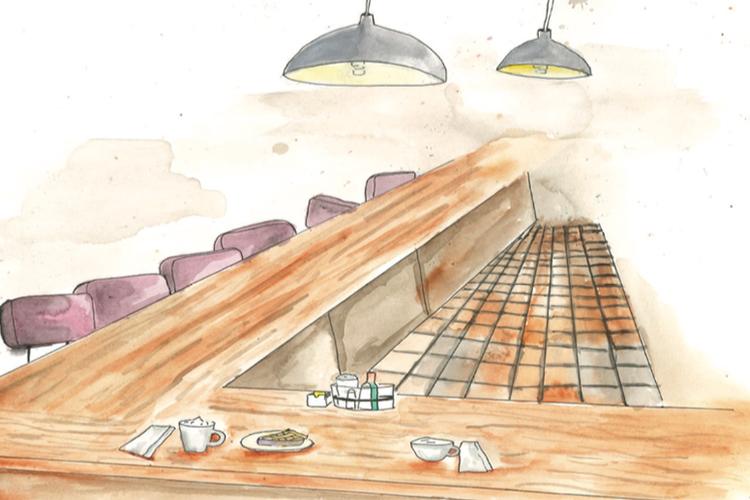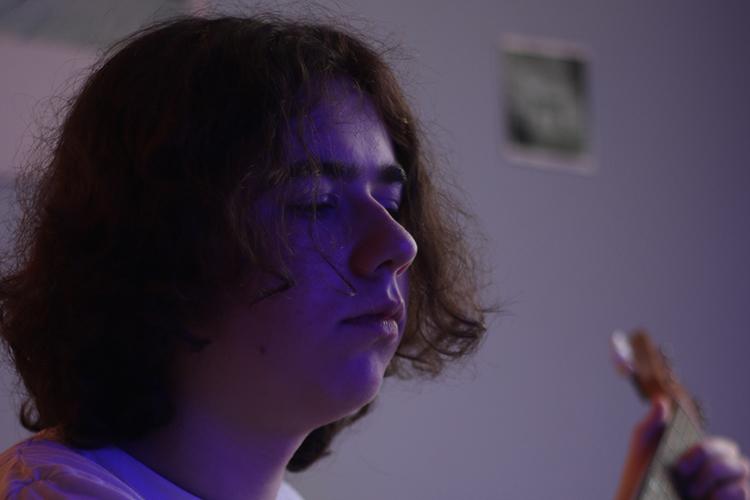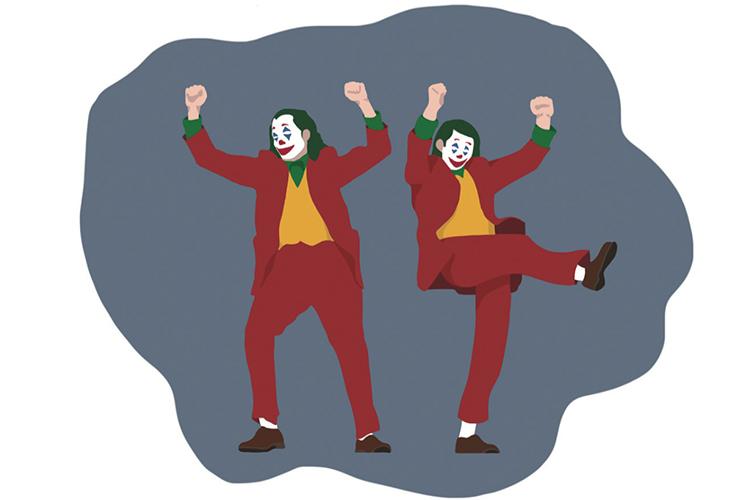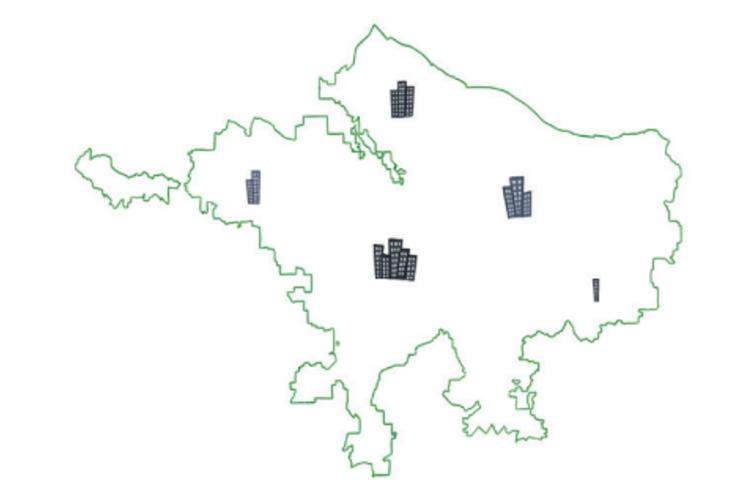
Every Sabbath was the same. An old man in a wool suit always opened the door to the church and passed out the brochures for that morning’s program. Older women stood by the sanctuary doors and commented on what a beautiful Saturday morning it was, how long it had been since they had seen me and how they continued to mistake me for my mother.
I felt drastically out of place amidst the mangrove of old men with crooked backs and women hobbling in their bow-buckled heels, translucent war hands clenching the cardstock church programs. There was a Veggie-Tales and veggie-meat subculture that felt foreign to me. I associated God with that church, and therefore my perception of God was antiquated and musty.
My mother’s childhood was grounded in Seventh-Day Adventism. My grandparents were once vivacious youth group leaders that led God-praising teens through outdoor excursions. I grew envious of the community-centered upbringing that my mother had. I was raised with the stories of campfire skits and softball games, and I longed for the potlucks and the everybody-knows-everybody atmosphere. However, that same atmosphere taught my mother to suppress her individuality and to not stray from the righteous picket-fence community that saved her from eternal damnation. Her unconventionality was disparaged, and as a result, she grew to resent the church in which she was raised.
Though my mother remains spiritual, she has since left organized religion, and in response, I grew up outside of any religious community. Still, my mother never painted an ill-fitting picture of her spiritual upbringing. She ensured that I was raised with an open-minded view of the church and that I was aware that spirituality was nothing to be demonized. But I was hyper-aware of the correlation between oppressive social politics and Christianity, and therefore, I silently cringed at my family’s religious affiliation. I saw how religion was used as the moral backbone behind homophobic and xenophobic policies. I saw how marginalized communities had been historically oppressed “in the name of God,” and so I correlated God with that oppression.
But I found it beautiful how my mother was still able to see the goodness in her upbringing, despite having later distanced herself from the church. Along with the picnics and community games, my mother also spoke fondly of Big Lake Youth Camp (BLYC), a Seventh-Day Adventist sleepaway camp that provided opportunities to ride horses, shoot arrows and “ride the wake.” It was my mother’s safe haven, a place where her community accepted her without external social pressures. I first went as a camper when I was 10, desperately searching for the community I had always envied.
As a 10-year-old, I struggled to harness my individuality. My life was a constant tug-of-war between a desire to fit in and a need to stand out. I resorted to flashy clothing and dyed hair and was extremely vocal about my place in political conversations around the dinner table. Self-expression was encouraged in my immediate family, especially because of my mother’s upbringing, but I always felt misplaced in my grandparents’ social group. Entering a more conservative environment gave me anxiety, for I was raised amidst a collection of eccentric artists and retired punk rockers and didn’t know what to say or how to behave. I felt impossibly conflicted with my need for a consistent community and my distaste for the suppression of self-expression. But I decided that it was my time to go to camp in order to experience the childlike freedom my mother had when she was young.
When I read that the packing list suggested a Bible, I was instantly caught off guard. My anxiety evolved from merely being homesick to a severe concern of being socially isolated. I didn’t know how I’d make friends from such different religious backgrounds, and I didn’t know whether my brightly colored hair would scare them off. I refused to take the bus there. The thought of having to force small talk with my seatmate for three hours terrified me. I was never a particularly shy kid, but I had never had to make friends with church-going folk before, and I was afraid I’d say something offensive or wrong. I feared I wasn’t biblically educated enough to converse with my cabinmates and that I’d expose myself as an agnostic phony.
When my mother and I arrived at this quiet oasis blanketed by dust and woodchip debris, we were met with excited hospitality and genuine, toothy smiles. I immediately sunk into the homey atmosphere that cloaked the beargrass and ponderosa pines. My mother followed me throughout the check-in process with a smug eyebrow raised, as if to say, “I told you you’d like it.” I had never imagined I’d feel so welcomed by a community I didn’t identify with. Yet I was still hesitant to discuss politics or my spiritual beliefs. I figured that if conversations remained surface level, and I continued to nod along, I would successfully avoid controversy.
That week we sang camp songs and watched campfire skits that always ended with a useful moral that our young, impressionable minds were supposed to internalize forever. We sang prayers before every meal and had worship every night before bed. I wanted to understand, I wanted to believe, but I couldn’t wrap my head around the concepts. The Bible was taught through a black and white lens: what is good, what is sinful, what is the truth. But I found myself lost in the gray area. I knew I believed in something, but I didn’t know how to define it, and I feared that it didn’t fit into the rigid walls of organized religion.
Despite my inability to fully immerse myself in the camp culture, I found a deep appreciation for the raw form of unconditional love that encircled the community. The counselors remained fully engaged with the campers despite having spent the entire week with their cabin with only a 24-hour break. Even the rowdiest of campers were met with gentle compassion. Everyone had a home here because we were surrounded by a community that wanted us to succeed. The staff emphasized the importance of trauma-informed care, and therefore, every conflict was approached with the knowledge that everyone comes to camp with their own story.
Boys were told that it’s okay to cry, one-on-one conversations were used instead of immediate disciplinary action and campers felt valued. I never felt invalidated, despite the fact I had never owned a Bible or participated in Sabbath school. My questions, driven by skepticism, were met with kind words and patient answers. I wasn’t expected to claim an identity that conformed to their teachings. I was able to run with my feet suspended in the air.
As my cabin grew closer, I learned that my fears to fit in were irrational. I had entered camp with a single image of Adventism. But my cabinmates were their own multifaceted individuals who didn’t deserve to be categorized in one particular way. Some of my cabinmates were cheerleaders from Beaverton; some were raised in intensely conservative homes; some came from traumatic backgrounds and came to camp as an escape. But we connected through a desire for community. We connected because we believed in God’s love—whatever we believed God was defined as. My only difference was that I didn’t believe in one certain definition.
The final night of camp, we circled on the wooden floors of our cabin, dirt ground into the cracks of the floorboards. We sat solemnly, compressed by the thickness of our collective heartache. We did not want camp to end, and emotions were heavy. That night we went around the circle and shared what we were most thankful for the past week.
“This year has been hard,” my counselor began to say.
My cabinmates and I waited in anticipation.
“This year, my mom, she kind of just, left.” Her voice began to quake under her words. “She said that she needed to get away. Which I don’t get because, I mean, you’re a mom, you kind of signed up for this.”
Quiet darkness enveloped the entire cabin and her words hung heavy. We all had our own internal and cosmic conflicts, but we had never imagined that our counselor, our grounding rock in our emotional experience at camp, had struggles of her own.
She kneaded her palms into her thighs and prepared her next breath.
“But camp – camp is where I feel most at home, and I’m surrounded by such a loving community. So this week, I’m thankful for you girls. For teaching me so much about being unapologetically silly and just embracing your time here at Big Lake.”
With damp cheeks and swollen eyes, my fellow cabin mates and I shrouded our counselor with
hugs and loving words. She had shown us kindness and compassion, and that night she had shown us the power of vulnerability. Was this what God was? Was it the loving powers that connected such a strong community? But then why do we always refer to God as “He” as if He’s a tangible being in the sky?
I realized as the week progressed that my constant search for definitions was in vain. I came to understand that some things are just simply undefinable. The love that magnetized my cabin together, that provided ground for the girls whose feet floated in the air, that provided safety for the girls who couldn’t find a stable source of support at home, that filled the void that was left by a mother’s abandonment—some things are not meant to be put into words, because we simply cannot express those powers linguistically. I found that each time I allowed myself to get lost in the uncertainty, I had a community in which I could seek refuge. I learned that God was not something to prove. Sometimes people just need something to believe in.
I came home from camp more confused than when I arrived. My image of spirituality shifted. I met a new kind of Christianity, a faith that encouraged the acceptance of everyone regardless of sexual orientation or religious affiliation. But I grew comfortable in my confusion. I allowed myself to get swallowed by my questions rather than search for answers.
As my mother drove through the winding mountain roads, she asked question after question about my week at camp. But I sat quietly in the back seat, my head pressed against the cold window watching my breath in an exhausted daze, daydreaming of a heaven I didn’t know if I believed in.




































